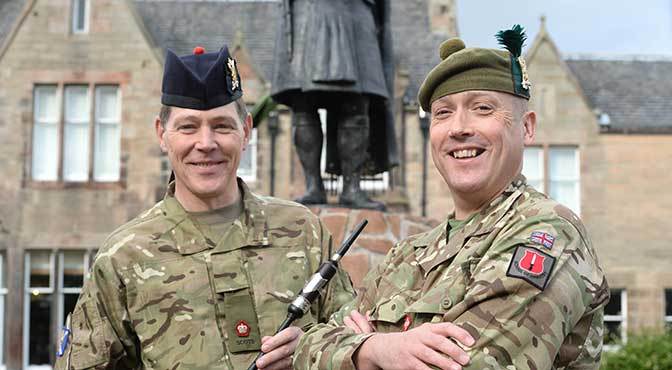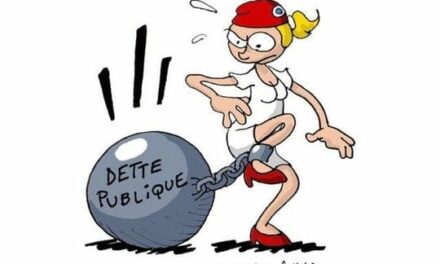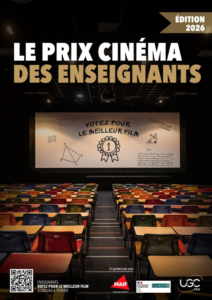
ÉPREUVES DE SÉLECTION PROFESSIONNELLE POUR L’ACCÈS AU GRADE DE MAJOR DE L’ARMÉE DE TERRE
Q.C.M. LANGUE VIVANTE
Nous sommes donc en face d’exercices de compréhension. le premier écueil, c’est le manque éventuel de vocabulaire de la part des candidats. Le second, ce sont des questions-pièges dont le niveau évolue avec les textes. Si les premiers sont assez faciles à comprendre, plus on va vers la fin de l’épreuve, plus cela se complique, avec notamment des faux-amis et des contresens.
Idée sur la méthodologie : lire les questions avant de lire le texte. Cela permet de cibler un peu mieux ce qui est à garder dans le texte.
Text 1
There are an estimated 8 million illegal immigrants in the 27-nation European Union; almost (1) a million were turned back at EU borders in 2006. Details of new EU immigration rules approved by the European Parliament:
-EU nations will be able to detain illegal immigrants for up to eighteen months to decrease (2) flight risk while (3) deportation is being processed (4).
-A re-entry ban of up to five years may be imposed on expelled (5) immigrants who do not cooperate.
-Illegal immigrants must be placed in specialized detention centers, not in prisons with convicted criminals
-immigrants must be given access to free legal advice (6), and children and families with children should only be detained as a last resort (7).
(1) Presque tous (ex : « almost all the french people », même famille que les « most of » qui veut dire la « plupart de… »
(2) Ici le sens est « limiter », c’est à dire éviter les rébellions lors des embarquements sur avion. « To decrease », c’est aussi « abaisser ». Le contraire est le verbe « to increase », « augmenter ». Ex: « an increase of income » = une augmentation de revenus.
(3) Pendant que, tandis que. Peut être remplacé par « when » (quand)
(4) En cours de procédure. Notez qu’on est sur une forme « ing » (being), ce qui signifie une action longue et continue.
(5) Expulsés
(6) Conseil. Ex : « Let me give you an advice » (laisse-moi te donner un conseil).
(7) Du mot français ressort. En dernier ressort. Ne pas confondre avec les complexes touristiques hôteliers type Palm Beach Resort, car dans ce cas le mot signifie hôtel, ou plus précisément « place to have rest » (endroit où se reposer)
– EU goverments have two years to implement (1) the new rules.
1. How long can illegal immigrants be detained?
a. 9 months
b. 12 months
c. 18 months
d. 16 months
2. Where should illegal immigrants be detained?
a. Detention centers and prisons
b. Detention centers
c. Prisons
d. Hotels
(1) Appliquer
Pour la question 1, pas trop de souci, c’est 18 mois (« up to eighteen months » dans le texte, ce qui veut dire jusqu’à dix-huit mois. Le seul problème est de passer du eighteen écrit au 18 chiffré.
Pour la question 2 réponse b, « detention centers », plus préciséement « specialized detention centers ». Là encore, pas trop de difficulté sauf à mal comprendre et à croire que les immigrants illégaux sont aussi mis en prison, car le mot « prison » apparaît une fois.
Text 2
One of my favorite vacation (1) places is Mexico. I really like the weather there because it never gets cold (2). The people are very nice too. They never laugh at my bad Spanish. The food is really good. Mexico City is a very interesting place to visit. It has some great museums and lots of fascinating old buildings. The hotels are too expensive to stay but there are more affordable (3) options. For example, you can stay at one of the beach resorts (4) like Acapulco. If you are planning to visit Mexico, you should definitely see the Mayan temples near Merida.
(1) Vacances, mais en anglo-américain. Les Anglais diront plutôt « holiday ». Pour un anglais, une « vacation » c’est une coupure, un « break » comme on dit en français.
(2) To get cold : « tourner au froid ». On trouve, avec « to get », plein d’autres sens : « to get old », « to get mad », to get sad » etc. Se conjugue, évidemment : « he got sad when his brother left the house » (il est devenu triste quand son frère a quitté la maison).
(3) Abordable, en prix. « Something you can’t afford » revient souvent : quelque chose que tu ne peux pas t’offrir, c’est « unaffordable », comme une Maserati V8 Sport, au hasard.
(4) Ici, vous l’aurez compris, c’est le sens « hôtel », contrairement au premier texte.
3. the author .
a. speaks Spanish fluently
b. speaks Spanish very well
c. is Spanish
d. doesn’t speak Spanish very well
4. Hotels
a. are very cheap (1) in Mexico
b. aren’t comfortable there
c. are all poor in Mexico
d. are pretty (2) expensive in Mexico
(1) Bon marché, le contraire d' »expensive », cher.
(2) Ici le sens c’est « plutôt, assez », et non pas « jolie » ou « joli ». Mais on peut dire « This girl is pretty attractive » (cette fille est assez attirante).
Pour la question 3, déjà la c ne va pas car l’auteur est visiblement un Américain qui passe ses vacances au Mexique. Et il est dit que les Mexicains « never laugh at my bad spanish », « ne rient jamais face à mon mauvais espagnol ». Donc il ne parle espagnol ni très bien, ni couramment (fluently). Donc seule réponse possible, la d.
Pour la question 4 réponse d aussi, car nulle part il est dit que les hôtels de Mexico étaient bon marché, pas confortables et pauvres !
Text 3
Residents of a small Welsh-speaking community have clubbed (1) together to buy the post office and shop, ten years after buying the pub. The people of Llithfaen, Caernarfonshire were determined to prevent (2) their village from losing its focal point. Ten years ago they paid £40,000 for the pub, called the Victoria, and now they have helped to keep the shop open. Most of the cost, £19,500, was carried by the local council and a European Union grant (3), but the villagers needed to raise a further (4) £6,000 to buy the shop from the owner (5) who is retiring (6). John Jones, chairman of the community committee, said: « We went around every house and came back with £500 more than we needed. The post office and the pub are essential to the life of the village. There are no other activities.
(1) S’associer
(2) Pour éviter. On écrit presque toujours « to prevent (….) from something »
(3) Bourse, subvention. L’occasion de rappeler l’expression « take it for granted » qui signifie plus ou moins « c’est comme si c’était fait »
(4) En plus. Dans le mot « further », il y a toujours l’idée de « plus ». Ex : « Let’s walk further », « marchons encore plus loin ».
(5) Le proriétaire, celui qui détient (verbe « to own », « posséder ».
(6) Qui prend sa retraite. « A retired » c’est un retraité.
5. The Llithfaen Post Office:
a. closed ten years ago
b. has been saved by the local people
c. has now closed
d. has been bought by Victoria
6. The shop was going to close :
a. because of a decision of the European Union
b. because the owner needed the money
c. because the owner thought he was too old to run the shop
d. because the local people don’t like to go shopping there
C’est avec le texte 3 qu’on commence a essayer de tromper le candidat, en lui faisant confondre le pub, acheté il y a dix ans, et le bureau de poste, out juste acheté. Pour la question n°5 il est donc question du bureau de poste, « the post office », donc réponse b. A noter la réponse d, qui suggère que le bureau de poste a été acheté par Victoria. Encore un léger enfumage puisqu’il s’agit du nom du pub, THE Victoria. Pour la question 6 réponse c. La réponse a n’est pas possible car l’UE a aidé au rachat avec un « grant », une subvention.
Text 4
A recent opinion poll (1) discovered that many people were very concerned about the amount (2) of sex and violence depicted in movies, television shows, and popular music. This poll also discovered, however, that most people thought that individuals should take responsibility to correct the problems. The vast majority favored such (3) solutions as tighter (4) parental supervision, warning labels on records, and voluntary self-restraints by entertainment (5) companies. Only 27 per cent favored government censorship (6). At the same time, there was a growing concern (7) about the impact of television on children. Research has shown that by the time our children reach age 18, they have spent more time watching television than in school. The problem was that our television system was attuned (8) to the marketplace (9). Chilchen are treated as a market to be sold to advertisers (10) at so much money per thousand eyeballs.
(1) Sondage. A ne pas confondre avec « pool », la piscine, le bassin.
(2) Une somme, un nombre.
(3) Mot très fréquent. « Such » signifie « tel/telle/tels/telles ». « Where di you heard such things , » (où as-tu entendu de telles choses). On peut avoir aussi le mot « such » dans « such a shame » (quelle honte), « such a mess » (quel gâchis) ou « such a pity » (quelle pitié).
(4) Plus sévère, plus dur
(5) Divertissement
(6) Censure
(7) C’est un faux ami, mais pas tant que ça. « Concern » veut dire « préoccupation ».
(8) Accordé. Littéralement. « To Tune » c’est accorder un instrument. C’est aussi une chanson simple, « a tune », comme les « Looney Tunes » de la Warner Bros, les « mélodies foldingues ».
(9) Le Marché, avec un grand « m ». Dans son sens vaste, pas comme si c’était la place du marché.
(10) Publicitaires.
7. According to the reading, to prevent the bad effects of television, only a minority
a. Support individual action
b. Say parents should supervise their children
c. Believe in the necessity of censorship implemented (1) by governments
d. Think television companies have to control their own broadcasting (2)
8. It is emphasized (3) in the reading that —-.
a. Many children have eyesight problems due to watching television excessively
b. Children are a main focus of the advertisers
c. There are not enough advertisements on television
d. Our television shows should be designed according to our children’s preferences
(1) Un verbe déjà vu plus haut, ici on peut le traduire par « mis en oeuvre ».
(2) Diffusion. « To broadcast » = diffuser à large échelle, comme le fait la BBC (British Broadcasting Corporation).
(3) On insiste sur, on met l’emphase sur tel ou tel problème.
Pour la question 7, réponse c. Cela n’est pas étonnant. Les britanniques n’aiment pas trop l’interventionnisme d’état. Ils préfèrent largement les « individual actions ». Pour la question n°8 c’est un peu plus piégeant, mai la seule réponse possible est la b. Occasion de rappeler que « to focus », c’est « se focaliser ». Mais ici « focus » signifie « cible ».
Text 5
English courts (1) have reacted quickly with tough (2) sentences to defendants (3) found guilty (4) in connection with the riots (5) which hit London and other British cities last week. The tough sentences are designed to set an example of the authorities’ anger (6) at the wave of looting (7), arson (8), mugging (9) and even murder which .swept (10) across London for three nights and spread (11) to other cities including Manchester, Birmingham, Liverpool, Nottingham and Gloucester on the third and fourth nights. The riots were sometimes instigated and guided by messages on social networking sites like Facebook and Twitter. In the north west of England, one man from the town of Northwich was jailed (12) for four years earlier this week for posting a message on Facebook telling people to meet at a specific time and place to start a riot in the town. When he turned up, the only other people there were the police who arrested him. Courts are also retaining defendants in custody(13) until their case is ready to be dealt with (14). In 65 percent of riot cases, defendants have been remanded in custody, against the average of 10 percent of cases.
Ici de plus en plus de mots de vocabulaire.
(1) Les cours de justice
(2) Dures
(3) Faux ami. « Defendants » ce sont les « prévenus ». Dans le système anglo-saxon ils se défendent contre les accusations de la justice.
(4) Coupables
(5) Révolte
(6) La colère
(7) Pillage
(8) Incendies volontaires ou criminels. Le pyromane en anglais est un « arsonist ».
(9) Agressions, passages à tabac
(10) et (11) Swept et Spread, ici au prétérit, sont assez proches. « To sweep » c’est se propager et « to spread » c’est s’étendre.
(12) Mis en prison. « In jail ». « Jailbreak » = évasion.
(13) Ici c’est la « détention provisoire ».
(14) « To deal with » = régler quelque chose, s’occuper de. Ex : « Dont’t worry honey, I’m dealing with the baby » (« Ne t’en fais pas chéri(e), je m’occupe du bébé »)
9. According to (1) the article, people who tried to organize riots through Facebook
a. Were ignored by the police
b. Were arrested by the police and subsequently sentenced
c. Were let off with a warning by the police
d. Were forbidden to post messages on Facebook
10. Where did the riots take place?
a. In London and several other cities across the U.K.
b. In London
c. Just outside of London
d. In Manchester and Birmingham
(1) Selon l’article. Expression très fréquente. « According to the news/the president/my father ». Inépuisable.
Les questions 9 et 10 ne posent pas de vrai problème, réponses b et a, même s’il est vrai que Manchester et Birmingham apparaissent dans le texte, mais avec mention aussi de Londres et d’autres villes, donc la réponse d n’est pas possible.
Text 6
The German airline Lufthansa announced that in the coming months falcons (1) are to be allowed (2) in the cabin during flights in a specially designed « Falcon Master » tray (3). It ensures (4) maximum protection of the cabin walls, seats and carpets (5) from soiling (6) by the birds.
The target (7) group would be customers from the Middle East, where falcony (8) is « very popular ». The United Arab Emirates runs wild falcon conservation projects as well as breeding nests (9) and veterinary hospitals for the animals. For centuries hunting with falcons was a major source of meat in the harsh (10) desert region, and the birds remain a national emblem, found on everything from corporate logos to banknotes (11). But with wildlife under pressure, hunting bas been restricted, and many influent Emiratis now travel abroad to locations as far as Morocco, Pakistan and Central Asia.
(1) Faucons
(2) Permis. « Allow me, madam » (« permettez-moi, madame », quand on invite pour danser dans les bals chics).
(3) Ici il s’agit non pas de plateaux, sens premier du mot « tray », mais de cages spécialisées, d’ « animal boxes ».
(4) Assurer
(5) Tapis
(6) souillures, déjections
(7) La cible, le groupe ciblé.
(8) Fauconnerie, l’art de chasse
(9) Nids d’élevage
(10) Dur, sévère, âpre
(11) Billets de banque
11. To please their customers, Lufthansa decided to
a. decorate its cabins with the national UAE symbol
b. give them a cage for their birds as a present
c. let them take their pets (1) into the cabin
d. extend their hygienic rules
12. Some Emiratis travel abroad with falcons to
a. train them to hunt
b. look for new ones
c. have them compete in races
d. save them from poacher (2) hunting
(1) Animaux de compagnie. « Pet shop » = animalerie.
(2) Contrebande
Pour la question 11, réponse c sans hésitation, le reste est fantaisiste. En revanche légère hésitation pour la question 12 : réponse a ou c ? Comme il n’est pas question de compétition dans les texte, la réponse a semble être la mieux appropriée : les émiratis les emmènent à l’étranger car il ‘est plus possible de chasser au faucon aux Emirats Arabes Unis.
Text 7
Services were disrupted (1) in Lewisham, south-east London, train operator Southeastern said. It apologised (2) and tweeted: « We had severe congestion through Lewisham due to dispatching issues (3) as a result of strong sunlight. » Passengers also took to Twitter – to share their disbelief (4) at the excuse. A spokesman at Southeastern said: « We know that sometimes it seems that if it is not leaves (5) on the line or snow on the track (6) then it is some other weather issue. But actually (7) glare (8) this morning made it impossible for some drivers to see the full length (9) of their train in their mirrors before leaving stations. When this happeared they have to get out and check to ensure (10) everybody has got on or off their train safely before they can move ».
(1) Interrompus
(2) S’excuser. « All apologies » = « toutes mes excuses »
(3) Incrédulité, l’excuse paraît trop invraisemblable
(4) Feuilles (d’arbres)
(5) Plusieurs sens au mot « track », relié au français « trace » ou au néerlandais « trek ». C’est la piste, le chemin, ou les rails. C’est aussi une piste sonore (track 1, track 2 etc.)
(6) Faux-ami très fréquent. Ne veut pas dire « actuellement » mais « en fait ».
(7) lumière vive
(8) La longueur totale
(9) S’assurer
13. When the passengers heard the announcement, they
a. warned the public about the danger
b. asked the authorities for help
c. started getting off in panic
d. thought it was a bluff
14. The trains stopped running because
a. the passengers couldn’t see where to get on or off the train
b. the train drivers couldn’t see the people getting off or on
c. the train drivers couldn’t see the tracks in front of them
d. the car drivers couldn’t see the trains at the level crossings
Pour la question 13, réponse c. Nulle question de panique ou de danger dans le texte. La question 14 est plus ambigüe : le choix peut se poser entre la b et la c. Mais il s’agit de la b, les conducteurs devant s’assurer que tout le monde était bien sorti ou entré.
Text 8
Never marry a football fan. That is the message from an Australian mother who discovered two years too late that the « unique and romantic » name Lanesra that her husband chose for their daughter, was his football team Arsenal spelled backwards (1).
But the beautiful game doesn’t always inspire a beautiful name. In 1966, a Liverpool supporter called his newborn after every player in the Cup-winning team. Pity (2) the poor teachers who had to take the register for Paula St John Lawrence Lawler Byme Strong Yeats Stevenson Callaghan Hunt Milne Smith Thompson Shankly Bennett Paisley O’Sullivan. His wife only discovered her daughter’s unusual name when she came out of hospital. « It was a stupid thing to do, but she loves the name now. » But, she says, unlike the father of baby Lanesra, he would never have waited two years to tell her the truth: « That’s the coward’s (3) way out! »
(1) épelé à l’envers. « Going Backwards » = aller en sens inverse, régresser
(2) Plaignez, ici c’est une injonction, un ordre.
(3) Peureux, couard
15. The Australian mother
a. warned women about football fans’ addiction to the game
b. loved the double meaning of her daughter’s name
c. advised women not to trust their husbands
d. suggested a rare name for her daughter
16. A Liverpool supporter
a. considered himself an honest man
b. hated teachers and wanted to cause them trouble
c. praised (1) the Australian fan’s lively imagination
d. laughed at the Australian man because he feared his wife
(1) Encenser, louer
Les deux questions posent problème. Pour la numéro 15, les réponses a, b et c sont dans un premier temps envisageables. Mais pour la b, le texte dit que c’est la femme du fan de Liverpool qui s’est habituée au nom, et non pas l’épouse australienne. Elle n’a pas non plus explicitement dit de ne pas croire les maris. Donc la seule possible est la a. Pour la question 16 une seule est possible là encore, bien qu’elle soit, à mon avis, pas terrible, c’est la b. Mais les trois autres sont si éloignées du texte qu’elles semblent vraiment improbable.
Text 9
Donald Rumsfeld, the two-time US secretary of defence had become a fan of the physical version of the solitaire variant using two decks (1) of cards rather than one, after he first playecl it in the 1970s. It was taught to him by Belgian statesman (2) André de Staercke, who had in turn been taught it by Churchill himself. He says that the game is « probably the most challenging and strategic game of logic or puzzle » he has ever played, and that he was concerned (3) that it would be « lost to the ages » if it wasn’t spread to more people. And so he accepted an offer to turn the game into an app. « Turning Churchill solitaire into an app of its own wasn’t something he ever envisioned. It wasn’t something I was sure the Churchill family would even want us to contemplate, » he said. But permission was granted from Churchill’s grandson, and development began.
(1) Rangées. Deck veut dire aussi pont (dans la marine).
(2) Homme d’état
(3) Il était conscient, n a ici un autre sens du mot « concern ».
17. Churchill solitaire
a. has been secretly passed on among politicians
b. was rendered complex by adding extra cards
c. was especially designed for Churchill
d. has been famous since the 1970s
18. Rumsfeld’s wish was to
a. introduce new rules of the game
b. reintroduce the game to public
c. save the game from disappearing
d. help Churchill’s family promote the game
Si la question 17 ne pose pas de problème (réponse b, le reste est impossible) il y a un risque dans la numéro 18 de confondre Rumsfeld et de Staerke. Mais une fois ce problème résolu, puisque dès la ligne 4 c’est Rumsfeld qui s’exprime, la seule réponse possible est la c….bien que la b soit possible. Bref, le brouillard s’épaissit au fur et à mesure qu’on arrive à la fin du test, ce qui est sans doute volontaire pour égarer les candidats.
Text 10
The Netherlands is to rent (1) out empty jail cells to Norway to face overcrowding (2) in Norwegian prisons. Three hundred Norwegians will be housed in Dutch prisons at a time when the Netherlands is closing clown 19 penal facilities due to a lack (3) of domestic (4) criminals. Fred Teeven, the Dutch (5) justice minister who is in charge of the prison service, defended a deal that will see the arrivai of foreign criminals found guilty of offenses including violent and sex crimes but that will save over 700 jobs. « In Norway there is a capacity shortage (6), and right now we have a surplus, » he said.
The prisons will have Norwegian management and be run according to Norwegian rules but the warders (7) will be Dutch. Due to lack of space, more than 1,000 inmates (8) in Norway are waiting to be placed in prisons, where they are assigned to individual cells. To solve the problem, Norway has leased (9) prisons from the Netherlands. But the move has dismayed (10) many Dutch inmates, who were transferred to another facility despite fighting to stay put in their « luxurious cells », as Dutch media have described them.
(1) Louer. « A room to rent » (une chambre a louer)
(2) Surpopulation. « Crowd » c’est la foule, à ne pas confondre avec « crew », qui est l’équipage d’un navire.
(3) Une manque de. Toujours « a lack OF something » : lack of time, lack of food etc.
(4) Faux-ami. Domestic signifie national, ou nationaux ici. Il n’y a pas assez de criminels aux Pays-Bas pour remplir les prisons.
(5) Néerlandais
(6) Pénurie, comme « food shortage », « oil shortage »….
(7) Les gardiens, les matons.
(8) Prisonniers, détenus
(9) Louer (autre mot, différend de « to rent »).
(10) Décevoir
19. The Netherlands and Norway
a. have convicts (1) with a similar background (2)
b. will pool (3) resources to build a prison
c. will share a facility (4) to reduce costs
d. face the same housing problems
20. Once the deal was reached, it appears that
a. the living conditions of Norwegian convicts will deteriorate
b. the prisoners will have guards from their own countries
c. the Dutch prisoners were unhappy to leave their prison
d. the most dangerous people will be in individual cells
(1) Autre mot pour « détenus »
(2) Expérience, milieu
(3) Unir
(4) Bâtiment, structure
Si vous ignorez que « facility » est un faux ami, difficile de cocher la réponse c. Pourtant c’est la seule possible pour la question 19. Pour la 20, réponse c. En effet, les Norvégiens seront gardés par des Néerlandais, ce qui met de côté la réponse a, et dans de bonnes conditions, ce qui évacue la réponse a. Enfin, nulle part dans le texte il n’est question d’individus dangereux.
Mathieu Souyris, lycée Paul Sabatier, Carcassonne.
mathieu.souyris@wanadoo.fr









